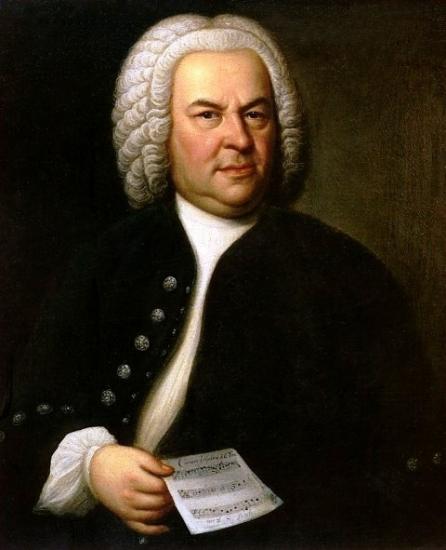Blog Johann Sebastian Bach: More Than a Great Composer
Johann Sebastian Bach: More Than a Great Composer

Johann Sebastian Bach lived a fully human life. We know him, today, primarily as a composer, but he also was a husband, father, student, teacher, manager, worker, and lover, with abilities and faults which were obvious to all who knew him. Here are just a few tidbits from his well-seasoned life:
- Was born into a musical family. His father was the director of the town musicians and all his uncles were professional musicians
- Was orphaned at age 10. First his mother, then his father died only eight months later.
- Disobeyed his older brother, who cared for him following his father’s death, copying his brother’s musical scores that were considered too valuable and private for a young boy
- Was awarded a choral scholarship to complete his education
- Once turned down a music job because he would have had to marry the boss’s daughter
- Married his second cousin, Maria Barbara Bach (she didn’t have to change her name). Her older, unmarried sister came to live in the Bach household, and continued to live there even after Maria Barbara died and Bach remarried
- After his first wife died, he married Anna Magdalena Wilcke, a soprano in his choir. She was 17 years younger than he
- Had 20 children; 10 died in childhood; 5 sons became important composers and musicians as well
- Walked a lot, including one 250 mile journey one way (He went both ways)
- Held at least 10 different music jobs during his career. He also did one time gigs and performed at weddings and funerals for extra income
- Was required by his contract to teach Latin in Leipzig, but he didn’t want to. He was allowed to hire a substitute at his own expense.
- Was once jailed for almost a month, and then fired from his job
- Wrote lots and lots of music. During one period he wrote a new cantata for church every week. His obituary mentioned 5 cycles of cantatas, but only three exist today. His collected works include 1126 entries, although many think at least half of his music was lost
- Was nearly blind at his death, apparently suffering from cataracts. A newspaper report at the time of his death in 1750 his death the consequence of an unsuccessful eye operation.
- When he died, he left behind 8 harpsichords, including 2 lute-harpsichords and a spinet, 3 violins, 3 violas, 2 cellos, a viola da gamba, a lute, and 52 sacred books, including books by Martin Luther and Josephus
- Was buried three times. His first grave went unmarked for 150 years; his second was destroyed by allied bombing during World War II, and his remains now lie at the Church of St. Thomas, Leipzig

 If you have any questions about the piano lessons or other inquiries about my piano instruction, please
If you have any questions about the piano lessons or other inquiries about my piano instruction, please